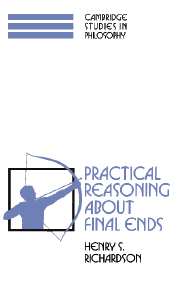XIV - Realizing rationality
Published online by Cambridge University Press: 05 June 2012
Summary
Of the three main barriers to mutual understanding that make for deep disagreement, that of tacit exemplars is the one that remains. Chapter XII argued that the incommensurability of cognitive ends can be dealt with rationally in the same way that conflicts of incommensurable ends may be in general, while the last chapter argued that a clash of hardened propositions does not create an insuperable barrier to interpersonal deliberation. Divergence in tacit exemplars, however, poses the hardest problem of all. Addressing it will require at least imagining some needed institutional support.
INSTITUTING DELIBERATIVE FREEDOM
Tacit exemplars resist rational deliberation because it is difficult to become fully aware of them. Their influence in giving life to the terms we use and the views we hold is so pervasive that it is very difficult to bring them all to consciousness, let alone to obtain a critical perspective on them. This problem also crops up outside situations of deep disagreement: The tacit commitments that shape every individual's practical thinking may, at times, interfere with reasoning, causing distortion or myopia. Yet in §27 I argued, in effect, that these tacit commitments could aid rational deliberation. They can provide highly nuanced sources of guidance, and can underwrite an important kind of practical perception. Via the sort of self-awareness spurred by the demands of deliberative choice, tacit commitments can become explicit.
- Type
- Chapter
- Information
- Practical Reasoning about Final Ends , pp. 292 - 308Publisher: Cambridge University PressPrint publication year: 1994



